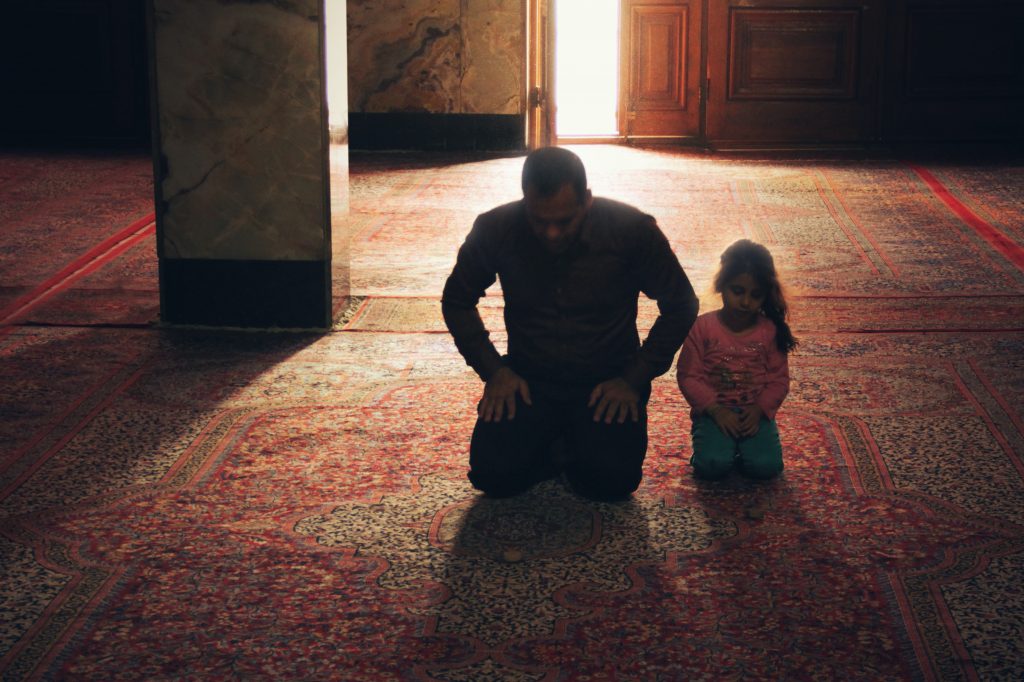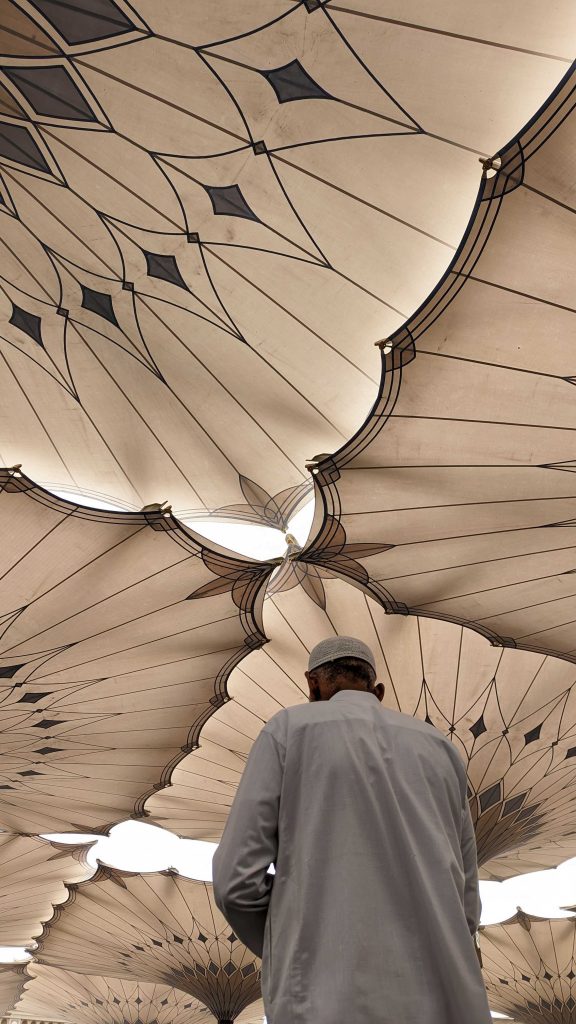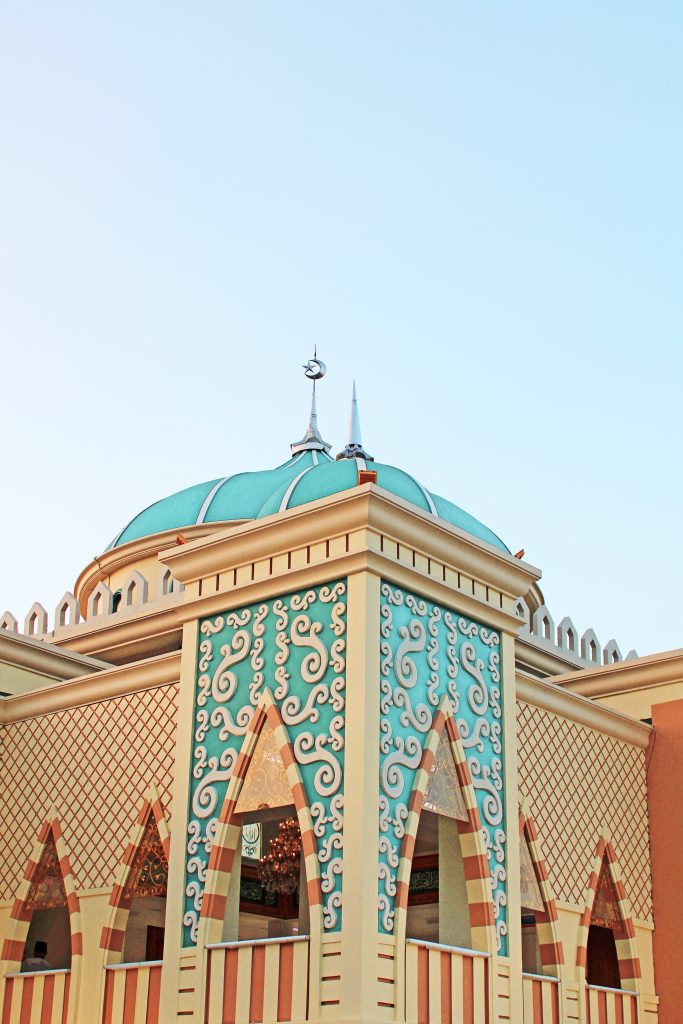
An era had passed, healed from ignorance and immorality by the light of Prophet Muhammad ﷺ. He ﷺ dawned a new era with the most perfect of morals.

وَمَاۤ اَرۡسَلۡنٰكَ اِلَّا رَحۡمَةً لِّـلۡعٰلَمِيۡنَ
“And, (O Esteemed Messenger,) We have not sent you but as a mercy for all the worlds.”
(Qur’an 21:107)
Throughout Islamic history, Muslims that truly connected their lives to Prophet Muhammad ﷺ, his teachings, his actions, and his ways saw prosperous revolutions within their lifetimes. There cannot be a better example of this than those that spent their lives in the company of the Prophet ﷺ. This is why, despite those around the Prophet ﷺ being grand sages, illustrious scholars and experts in every field of science, the greatest title and honour they were given was the title that connected them to the companionship of the Noble Prophet ﷺ .
Change of an Era
Those same individuals who went from living within an ignorant, illiterate society practising inhumane and immoral actions went on to spread an educational, social, and political revolution across the globe. They established a system of justice based upon human rights decades after the passing of the blessed Messenger ﷺ.
However, today the age of Islam is nothing but the dried ink on the pages of history and the connection to the Prophet ﷺ, is little other than the ritual slogans on Muslim tongues.
It would be the height of ignorance if we were to ignore or pay little attention to the importance of the Prophet Muhammad ﷺ as a central role model in our lives. It is for this reason that Allah Almighty did not just send down to mankind a book of revelations in the form of the Holy Quran or the scriptures but sent down with such revelations, Prophets and Messengers that could be perfect examples to their communities. It is an honour and privilege that Muslims in his ﷺ community were sent the most perfect role model ever created by Allah Almighty in the form of the Prophet Muhammad ﷺ.
It is well known that even before the announcement of Prophethood, the Prophet ﷺ earned titles of Al Amin (the Trustworthy One) and Al Sadiq (the Truthful One). In that Pagan Makkan society, when disputes arose, he ﷺ was chosen as the fair arbitrator, and when people needed to entrust someone with a saving, he ﷺ was the protected bank for their savings.
Allah Almighty Himself declares within the Holy Quran, that the Prophet ﷺ is the very definition of the heights of moral excellence:
وَإِنَّك َ لَعَلَى ٰ خُلُق ٍ عَظِيم
“And assuredly, you are placed high on the Most Glorious and Exalted (seat of) character.” (Quran 68:4)
Furthermore, the Prophet ﷺ himself outlines his mission to humanity based upon this matter when he ﷺ states, “I have been sent to perfect excellent moral character.”1 This mission of the Prophet ﷺ ignited such a revolution that those people born within an ignorant society which praised itself upon ignorance and illiteracy became a people that adorned knowledge. This was a society that would bury their daughters alive due to inhumane practices and saw women to have no worth. However, after the establishment of Islam, they would be questioned and challenged upon their legislative proposals in the Parliament of Medina by women with equally established roles in society.

Through Islam, the Noble Prophet ﷺ rewrote moral codes; deceit with truthfulness, hate with love, injustice with justice, dishonour with honour and mercilessness with mercy.
It was this leadership that provided Islam with the ability to spread across the world. Fred Donner, a historian of early Islam states, “By the early eighth century, barely a century after the death of Muhammad, Islamic rule and culture stretched from the Atlantic to the Indus and Oxus Rivers, and from the central Asian steppes to Sudan. A new world had emerged, with new peoples, languages, and religions. The ideas and practices that had originated in the Arabian Peninsula under the leadership of Muhammad had been adapted to this new world, but they had also transformed it in profound ways.”2
Modern Context
Unfortunately, some people in the modern context have misunderstood the rise of Islam as pure conquests. Whilst history has recorded empires that have spread like wildfire through war and conquests such as the Mongol Empire, historians widely note such empires had little lasting impacts on the nations they conquered, and their legacies fell just as fast as their conquests.3
The reality was that the early Muslims were influenced by the teachings and moral conduct of the Prophet ﷺ and thus the appeal to Islam became due to possessing the best of morals.
On this, the British author and commentator Karen Armstrong highlights, “Islam appealed to people who were disillusioned with the vague mysticism and tribalism of Arabian paganism and with the greed, corruption, and cruelty of Byzantine and Sassanian rule. In addition, the simplicity and clarity of the new faith were very attractive, and it had a special appeal for the poor and the marginalized, for whom Islam was a message of hope, equality, and social justice.”4
An example in the current era is Indonesia, the world’s most populous Muslim nation.5 There is an abundance of historical evidence and experts on this subject that highlight the spread of Islam to this area was led by Muslim traders.6 Their moral conduct, especially their honesty and integrity that was shown in their business relations had appealed to the home communities and slowly led to entire regions accepting the message of Islam.7

Endlessly Perfect Nature
Islam was not spread by the sword but spread by those that placed the Prophet Muhammad ﷺ as their role model and embodied his moral excellence within their lives. The perfection of the Prophet ﷺ is not restricted to a single area of moral excellence but is comprehensive in nature.
To understand this further, the mother of the believers, Lady Aisha R.A. was asked about the blessed character of the Prophet ﷺ . She responded by saying, “Have you not read the Quran?”, “Verily, the character of the Prophet of Allah was the Quran.”8
Whilst there are many traditional commentaries of this narration, Dr Muhammad Tahir-ul-Qadri explains that the response by Lady Aisha R.A. was in fact a negation of the original question. The questioner assumed that the character of the Prophet ﷺ could perhaps be explained by a simple response. However, by connecting the blessed character of the Prophet ﷺ to the Holy Quran, Lady Aisha R.A. highlighted that the Quran is of the highest perfection without even a doubt of error; similarly, the character of the Prophet ﷺ was comprehensive to an endless limit.
In the same manner, if one is to take a second and ponder a little further, we would realise that just like the Holy Quran is a book which has the answers to every question and within it is the knowledge of every science and practice. In that same manner, a comprehensive analysis of the practices and teachings of the Prophet Muhammad concludes him to be a perfect role model in every way.

The tragedy of this era of Muslims is the forgotten importance of following the Prophet ﷺ as a role model. If the teachings from his noble life were rekindled, Muslims would once again see glimpses of a golden age.
1 Ahmad b. Hanbal, al-Musnad, 2:185.
2 Donner, F.M.G. (2010) Muhammad and the believers at the origins of Islam. Cambridge, MA: The Belknap Press of Harvard University Press, pp.171
3 May, T. (2016) The Mongol Empire: A Historical Encyclopedia [2 volumes] (Empires of the World).
4 Armstrong, K. (2009) Islam: A short history. London: Phoenix Press.
5 Marr, John S. and Anthony G. Hopkins. “Islam in Indonesia: Contrasting Images and Interpretations.” Amsterdam University Press, 2013, p. 22.
6 Riddell, Peter G. “Islam and the Malay-Indonesian World: Transmission and Responses.” University of Hawaii Press, 2001, p. 5.
7 Ricklefs, M.C. “Islam in Southeast Asia.” Brill, 2016, p. 9.
8 Ṣaḥīḥ Muslim 746.